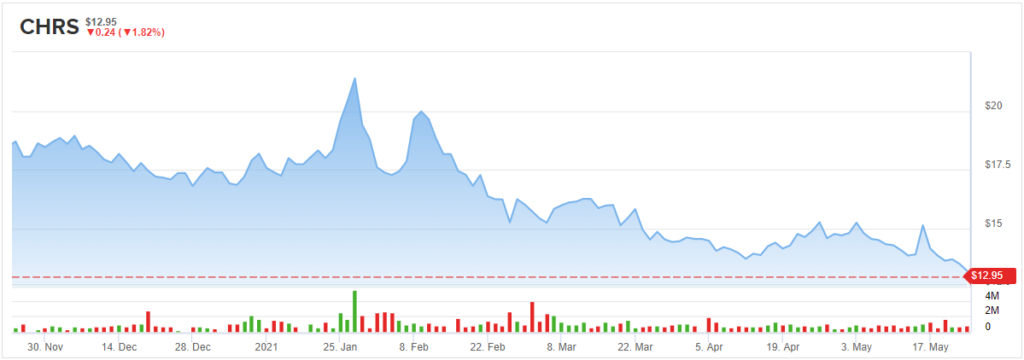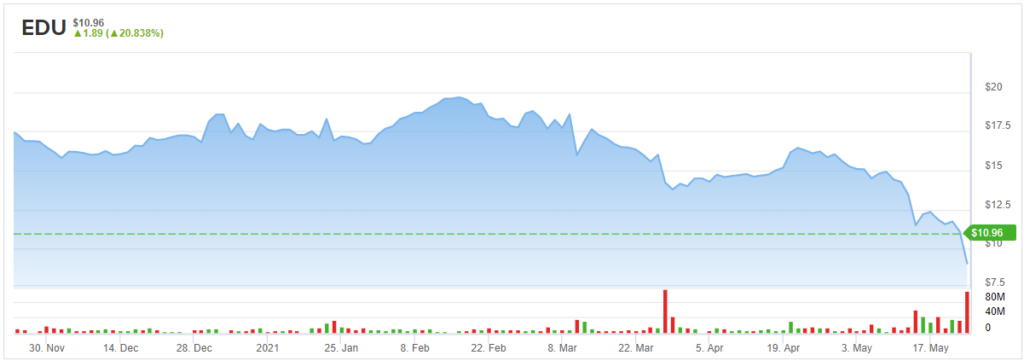The savvy investor knows that the best time to buy is when a stock is priced low. One of Warren Buffett’s better-known quotes is ‘Be fearful when others are greedy, and greedy when others are fearful.’ Or in other words, the time to buy is when everyone else is fleeing.
Don't Miss Our Christmas Offers:
- Discover the latest stocks recommended by top Wall Street analysts, all in one place with Analyst Top Stocks
- Make smarter investments with weekly expert stock picks from the Smart Investor Newsletter
Ray Dalio, the investing genius behind Bridgewater Associates, puts a similar thought in different words. ‘Do the opposite of what your instincts are,’ he says, advising investors never to trust their gut.
For the retail investors, this means that stock which fallen to rock-bottom prices may be just the ticket. They’re priced low for a reason, and at base, that reason is that investors have jumped ship.
The crowd has made a choice; but some analysts on the Street see this as an opportunity. Using TipRanks’ database, we pinpointed two beaten-down stocks that scored enough praise from the Street to earn a “Strong Buy” consensus rating.
Coherus Biosciences (CHRS)
We’ll start in the biotech sector, where Coherus Biosciences develops and manufactures biosimilar drugs. These are biological medicines designed to be similar in function and target to an approved reference medicine for which the patents have expired. Lower-cost biosimilars are seen as a way to expand patient access to the biological medicine market.
Coherus currently has one product approved and on the market, and an active pipeline featuring four additional biosimilar drugs. The development programs include treatments in oncology, immunology, and ophthalmology.
The approved product, Udenyca, is a biosimilar to Neulasta (pegfilgrastim), which stimulates production of white blood cells and is used to stimulate bone marrow activity in chemotherapy patients. Udenyca was approved by the FDA and the EU in the fall of 2018. It has been commercialized as a lower cost alternative to Neulasta, whose price has tripled since its introduction.
Coherus’s pipeline projects include biosimilars for Humira (a treatment for Crohn’s disease), Avastin (a treatment for various eye cancers), and Lucentis (a treatment for macular degeneration and diabetic retinopathy). Most of these drugs are in Phase 3 clinical trials; CHS-1420, the Humira biosimilar, is currently in the Biologics License Application (BLA) process, a key milestone before the drug can be marketed commercially.
Usually, a pharmaceutical company with a solid product on the market and an active pipeline could expect to see its shares climb – but CHRS shares are down, having lost 39% since peaking in January of this year.
In its recent Q1 report, Coherus showed a steep loss in earnings. EPS came in at negative $2.37, a far cry from the 12-cent EPS profit reported in Q4. At the top line, the $83 million in reported revenue was the lowest in two years. The losses were attributed by the company to a one-time $145 million payment to Junshi Biosciences in connection with the toripalimab program.
Maxim analyst Jason McCarthy acknowledges that CHRS is in a tight spot, but believes the company can chart a course out.
“The [Q1] miss was largely driven by pricing pressure and inventory dynamics reducing sales volume for Udenyca. The company is expecting growth in 2H21, as customers switch back from OnPro to prefilled syringe post pandemic. That said, pricing pressure will likely play a role going forward, with Amgen reducing the price for brand Neulasta below biosimilar,” McCarthy noted.
McCarthy goes on to say, about CHRS’ path forward: “Like generics, competition and pricing erosion, were a question of when, not if, for Biosimilars. Coherus has maintained good pricing discipline, but with competition mounting and Amgen cutting its price, pricing pressure is likely to slow growth for Udenyca. In our view, the pipeline remains attractive for the mid-to-long term, particularly with the move into immune-oncology…”
The analyst’s outlook supports a Buy rating, and his $22 price target implies a one-year upside potential of 66%. (To watch McCarthy’s track record, click here)
Overall, Wall Street still likes Coherus. The stock has 7 recent reviews – and they all agree on Buying the stock, giving CHRS shares a unanimous Strong Buy consensus rating. The stock is selling for $12.95 and its $24.86 average price target implies an upside of 92% in the next 12 months. (See CHRS stock analysis on TipRanks)
New Oriental Education (EDU)
Let’s shift gears, move over to China. The Asian giant has a huge education sector, a product of both the country’s 1.35 billion people and its cultural imperative to provide a solid education for the kids. The result: a thriving economy of private, for-profit tutorial and educational companies. New Oriental Education lives in this sector; the company offers tutoring for primary and secondary students, college prep courses, assessment test prep courses, and foreign language training. It also provides technological services, including proprietary educational software products.
New Oriental reported it’s fiscal Q3 results in April, and the results beat expectations. Top line revenue grew 29% year-over-year, to reach US$1.19 billion, while EPS came in at 10 cents – where analysts had expected to see 7 cents per share. The gains were driven by a 42% yoy increase in total student enrollment in academic tutoring and test prep courses. The company also expanded its reach into China’s schools, and continued to open stand-alone learning centers.
Despite all of this, and despite today’s 20% jump, shares in New Oriental Education are still down over 40% year-to-date following a clampdown by governmental regulators. Modern China has never shirked the bureaucracy, and the current regime has begun cracking down on the for-profit education industry.
The immediate result was a lower share price – but possibly a longer term opportunity, according to Nomura analyst Jessie Xu.
“With policy overhang on the whole industry, we believe EDU should be the most resilient among peers. We expect the market to appreciate its leading presence, conservative marketing strategy, strong capital strength, and minimal exposure to pre-school education,” Xu noted.
The analyst added, “Although EDU is not immune from the potential industry risks in the short term, we believe any restraints on licence [sic] and advanced tuition fee management will devastate a certain amount of smaller players, and eventually benefit EDU as an industry leader in the mid-term, assuming no material change on the demand side.”
In Xu’s view, this is a stock to Buy, and her US$19 price target implies 73% growth in the coming year. (To watch Xu’s track record, click here)
Xu is not the only analyst upbeat on this stock. Her colleagues on the Street give EDU 5 Buy reviews, holding up a Strong Buy consensus rating. The stock is selling for $10.96, and the $18.34 average price target implies it has 67% upside for the next 12 months. (See EDU stock analysis on TipRanks)
To find good ideas for beaten-down stocks trading at attractive valuations, visit TipRanks’ Best Stocks to Buy, a newly launched tool that unites all of TipRanks’ equity insights.
Disclaimer: The opinions expressed in this article are solely those of the featured analysts. The content is intended to be used for informational purposes only. It is very important to do your own analysis before making any investment.





















